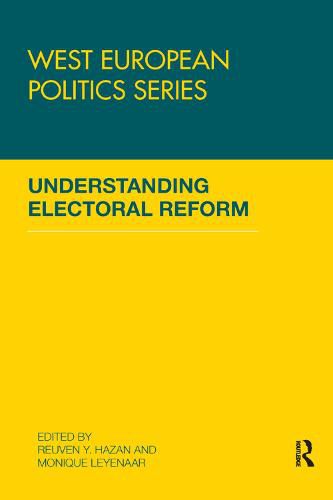Readings Newsletter
Become a Readings Member to make your shopping experience even easier.
Sign in or sign up for free!
You’re not far away from qualifying for FREE standard shipping within Australia
You’ve qualified for FREE standard shipping within Australia
The cart is loading…






The field of elections and electoral systems, and particularly electoral reform, has exhibited tremendous growth and cross-national appeal over the last two decades. However, beyond an increased knowledge of voting rules and their consequences for political representation, little attention has been devoted to the question of why electoral systems have recently undergone substantial change in several liberal democracies.
This book addresses several new approaches to electoral reform. First, the scope of the study of electoral reform has been expanded. Second, contrary to previous studies of electoral reform, the conviction that the determinants of reform can be explained by one single approach has been replaced by a belief in a more comprehensive framework for analysis. Third, we move beyond political parties (acting in parliament and government) as the most significant source of electoral reform. Fourth, a focus on the determinants of electoral reform allows us to include motivations and objectives of electoral reform. A final advancement in the study of electoral reform is the inclusion of countries other than ‘established’ democracies.
This book was published as a special issue of West European Politics.
$9.00 standard shipping within Australia
FREE standard shipping within Australia for orders over $100.00
Express & International shipping calculated at checkout
The field of elections and electoral systems, and particularly electoral reform, has exhibited tremendous growth and cross-national appeal over the last two decades. However, beyond an increased knowledge of voting rules and their consequences for political representation, little attention has been devoted to the question of why electoral systems have recently undergone substantial change in several liberal democracies.
This book addresses several new approaches to electoral reform. First, the scope of the study of electoral reform has been expanded. Second, contrary to previous studies of electoral reform, the conviction that the determinants of reform can be explained by one single approach has been replaced by a belief in a more comprehensive framework for analysis. Third, we move beyond political parties (acting in parliament and government) as the most significant source of electoral reform. Fourth, a focus on the determinants of electoral reform allows us to include motivations and objectives of electoral reform. A final advancement in the study of electoral reform is the inclusion of countries other than ‘established’ democracies.
This book was published as a special issue of West European Politics.